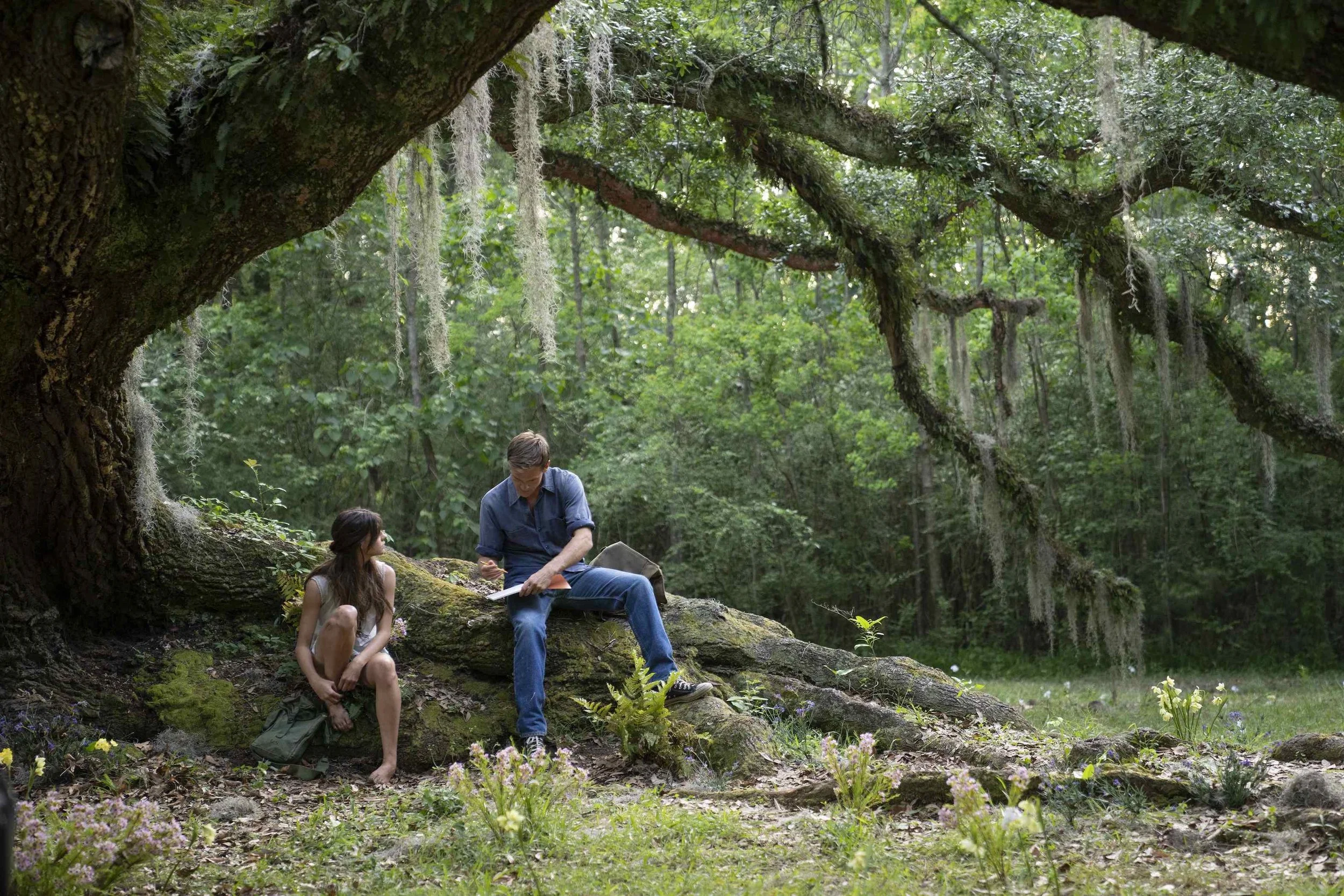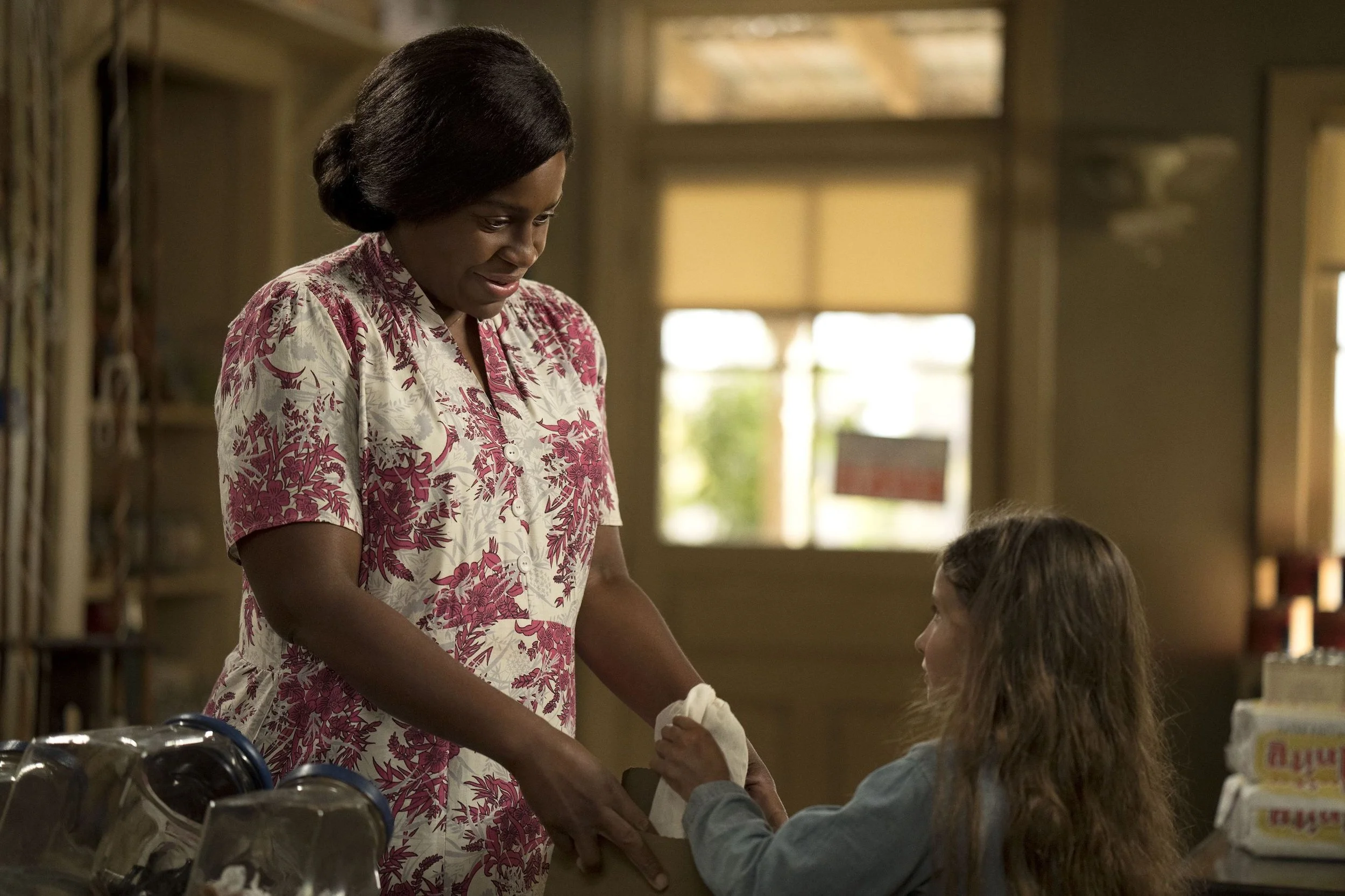Off Key
Reese Witherspoon’s latest “woman’s picture” thinks it’s saying something profound but is really just a yA Soap Opera.
Where the Crawdads Sing
Director: Olivia Newman • Writer: Lucy Alibar, based on the novel by Delia Owens
Starring: Daisy Edgar-Jones, Harris Dickinson, Taylor John Smith, David Strathairn, Michael Hyatt, Sterling Macer Jr, Garret Dillahunt
USA • 2hrs 5mins
Opens Hong Kong September 15 • IIB
Grade: C
At one point in Where the Crawdads Sing, after guileless yet low-key brilliant marsh dweller Kya Clark (the suddenly omnipresent Daisy Edgar-Jones) endures a beating from her town jock boyfriend Chase (Harris Dickinson) – because these guys are always called Chase, or Chance or Bryce or some shit – the Black shopkeeper, Jumpin’ (Sterling Macer Jr), who’s been keeping an eye on her since she was abandoned as a child, asks about her black eye. She brushes him off and proceeds to explain how the law won’t help her because boo-hoo she’s been persecuted and ostracised by her small North Carolina town since forever, and they’ve already judged her. This pretty white girl says this to the Black dude. In the South. In the 1960s, when Crawdads is set. I’ll just leave that there.
That scene is emblematic of the kind of white lady empowerment Reese Witherspoon seems to take pride in leaning into as producer, completely unaware of her blindspots in her quest to be a very gently feminist mini-mogul at her Hello Sunshine imprint. To Witherspoon’s mind, evidently, as long as it’s got some estrogen, everything else if forgivable. Well, as they’d say in the South, bless her heart. And really, is it any surprise she optioned the rights to a book by a genteel fellow Southern Lady, Delia Owens, about a gifted writer (ahem) who’s In Touch With Nature? A writer, by the way, who’s wanted for questioning in a murder (which she denies) in Zambia. But… Zambia. Who cares, right?
Anyway, that’s just more context for the facile, tortured and languidly shot (by A Quiet Place Part II and the upcoming The Woman King cinematographer Polly Morgan) soap opera that Crawdads is at its core, despite aspirations of having something to say about cycles of violence, race and poverty, and manmade versus natural law. It’s an overwrought young adult romance, in which the “filthy marsh girl” is never less than glowingly photographed at the golden hour, chestnut locks cascading just so, framing her unflawed face as she skulks around town ashamed in her shabby-chic wardrobe. Kya winds up living alone in her family marshland domicile (rustic, never squalid) after her abusive father (Garret Dillahunt) chases away her mother, then all her siblings before vanishing himself. She’s chased from school by the mean girls. Her only friends are Jumpin’ and his wife Mabel (Michael Hyatt). But she’s a natural artist, whose photorealistic drawings of shells, birds and plants will make her a publishing sensation (I shit you not).
Good YA romance needs a love triangle, so she’s caught between Tate (Taylor John Smith), the fellow naturalist who wants to go off to university at Chapel Hill, and his doppelgänger, local rich kid Chase; she’s got a type. When Chase turns up dead, Kya goes on trial for murder, her only ally retired defence lawyer Tom Milton (David Srathairn, who always classes up the joint). Will she go to jail? Did she do it? Did Tate do it? Will she wind up with Tate? Will she continue to wear shoes?
Where the Crawdads Sing is all hanging vines and chirping crickets, sunsets and lapping water, none of which says anything about the issues writer Lucy Alibar (who co-wrote the superior magical realist Beasts of the Southern Wild) intermittently hints at but never commits to. Alibar and second-time director Olivia Newman are more interested in the fantasy of the self-reliant woman tooling around in a motorboat, whose righteous defence of nature automatically makes her superior to her fellow townsfolk. Watching Kya and Tate get all horned up over leafy vortexes and flocking storks is more important than interrogating the dynamics of race, class and domestic abuse. When Kya goes on trial, she sits at the defence table bearing a perpetually confused expression, the angel whose actions are always justified by the fact everyone else is an asshole. Very little of this is the cast’s fault, strong up and down the line. Kya’s characterisation as an archetype and a cipher (how do you do that?) isn’t Edgar-Jones’s (Normal People, Fresh) problem; she’s an engaging enough actor to imbue Kya with at least some shading. But if she doesn’t find a better vehicle soon she’s going to turn into the next Jennifer Lawrence: overexposed and under-challenged. And I can’t help with the Taylor Swift song (“Carolina”). Didn’t listen. — DEK



